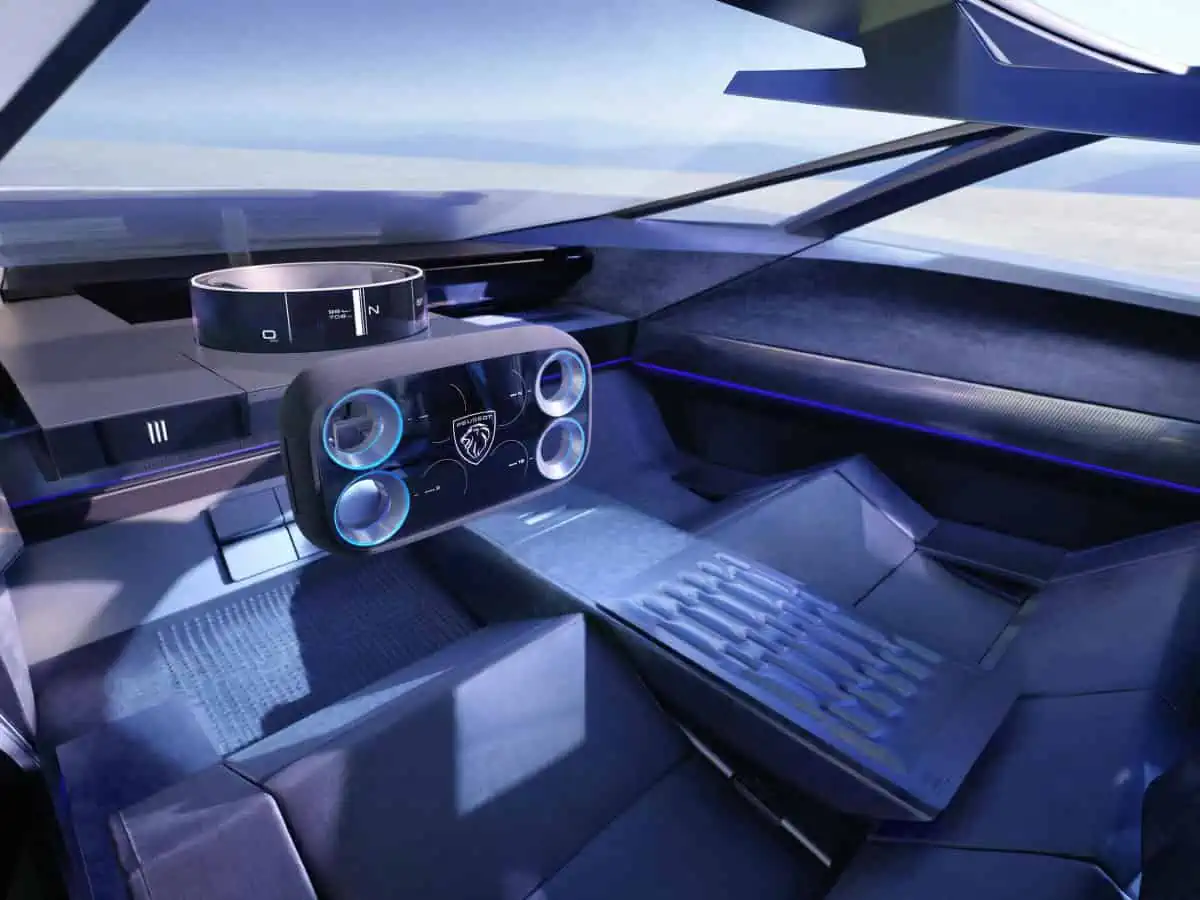More than 10 years ago, with the first generation of the PEUGEOT 208, PEUGEOT dared to revolutionise one of the elements that has evolved least in the history of the car: the driving position. Since then, almost 10 million units have been produced and the i-Cockpit® has been extended across the entire range. It has proven its excellence in improving the emotion, safety and comfort of drivers and passengers, now a distinctive feature of PEUGEOT vehicles.
The i-Cockpit® concept was created with its three fundamental elements, which have remained unchanged ever since:
- A compact steering wheel for a better driving feel and optimal handling.
- A elevated display that allows the driver to view all driving-related information while keeping his or her eyes on the road.
- A large central touchscreen, within easy reach and view, which allows the driver to manage the car’s main functions.
The i-Cockpit® is now a “signature” feature of each PEUGEOT. It can be found across all models and is also the story of a successful.
The story began in 2010 with the presentation of the PEUGEOT SR1 concept car at the Geneva Motor Show, an elegant coupé-cabriolet that showcased some of the thinking going on at the brand. This included a revolutionary driving position that turned the traditional codes of design and ergonomics on their head…
At the time, the PEUGEOT teams were looking to develop the driver’s seat for more onboard emotions, more ergonomics and more safety. A small team of designers and engineers set to work: fairly quickly, the proposal for a smaller steering wheel emerged. Until then, in a car, the steering wheel was large and the information on the display was read through the steering wheel. The reasoning behind this was that this conventional positioning of the display and steering wheel was distracting. The best position for reading the information was at eye level. The information had to be mounted at eye level. This new position, combined with a smaller steering wheel, created an entirely new system, with a display which came to be known as the “head-up display”. A touch screen was added, which made all the controls much simpler and added connectivity. This was the beginning of touch screens for PEUGEOT.
“The stakes were high for the brand, we were taking a calculated risk by committing to such an innovative and novel concept. Above all, we had to make sure our customers liked the concept. We organised tests on a circuit with French and German customers. We had them drive a car with a regular steering wheel and dashboard, then we put them in the prototype with this new steering wheel and this new elevated cluster. The feedback was excellent, very qualitative. The young people appreciated the sportiness, while the older ones felt that it was agile, that it was modern and that it represented a shift from the past. Everyone took to the little steering wheel with great ease. We were absolutely convinced that we had something unique.” Jérôme Micheron, Peugeot Product Director
In 2012, the PEUGEOT 208 proudly displays the i-Cockpit® and causes a stir
The first generation of the PEUGEOT 208 caused a stir by introducing the i-Cockpit® as standard. It quickly established itself as an innovation that transformed the driver’s experience:
- More driving pleasure: thanks to the compact steering wheel, the car is even more agile to the driver’s movements, who also needs to move his arms less for the same manoeuvre.
- More driving comfort: with the instruments in front of the eyes, there is less eye strain. The lower steering wheel allows the driver’s arms to be positioned at more comfortable angles, and the central touchscreen allows intuitive operation of the vehicle’s main functions.
- Optimised safety: the compact steering wheel makes reactions quicker, the elevated display makes the eyes more focused on the road, and the dashboard alerts are more visible. All this reduces driver fatigue and therefore increases safety.
- A unique design: technological and refined, it enhances the driving experience.
Constantly evolving to better adapt to customer needs
Since its appearance, the PEUGEOT i-Cockpit® has continued to evolve and modernise. In 2016, the second generation of the PEUGEOT 3008 and PEUGEOT 5008 unveiled a version with a 12.3-inch digital display that can be fully customised and personalised, while toggle switches are placed under the central touchscreen to make access to essential functions even easier. In 2019, the second-generation PEUGEOT 208 introduced a 3D digital cluster.
The PEUGEOT i-Cockpit went one step further on the new PEUGEOT 308 (2021) and 408 (2022) with the introduction of the new i-Connect® infotainment system, a new compact steering wheel capable of detecting the presence of the driver’s hands when using the driving aids and touch-sensitive i-toggles that can be configured for air conditioning, telephone contacts, radio station and application launch settings… all of which can be set at the user’s discretion.
The PEUGEOT i-Cockpit® has not finished evolving
The story of the PEUGEOT i-Cockpit® is still in its infancy, “The i-Cockpit® must always remain intuitive, dynamic and iconic: this is one of our objectives. PEUGEOT has been the forerunner in this field, so it’s up to us to continue to pave the way for ever more innovation and inventiveness in order to stay one step ahead and remain iconic. It is about constant renewal to continue to surprise and remain at the top level. We know one thing for sure, the i-Cockpit® has a bright future! Bertrand Rapatel, Director of Interior Design at PEUGEOT
The PEUGEOT INCEPTION concept, presented at CES in Las Vegas at the beginning of the year, shows the evolution that the new PEUGEOT i-Cockpit® could take, even more intuitive shows the future evolution of the i-Cockpit with the Hypersquare, a revolutionary new steering control, offering new gestures for a new generation, brought up on tablets and smart devices.
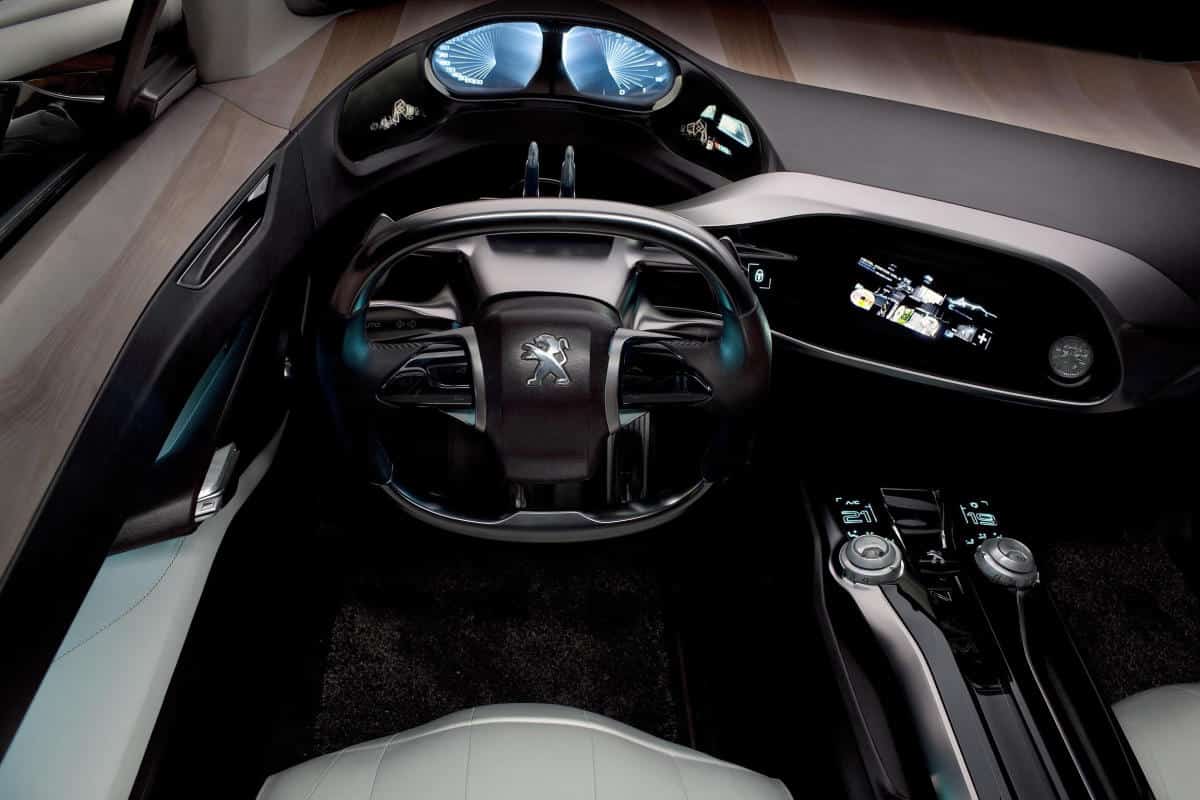
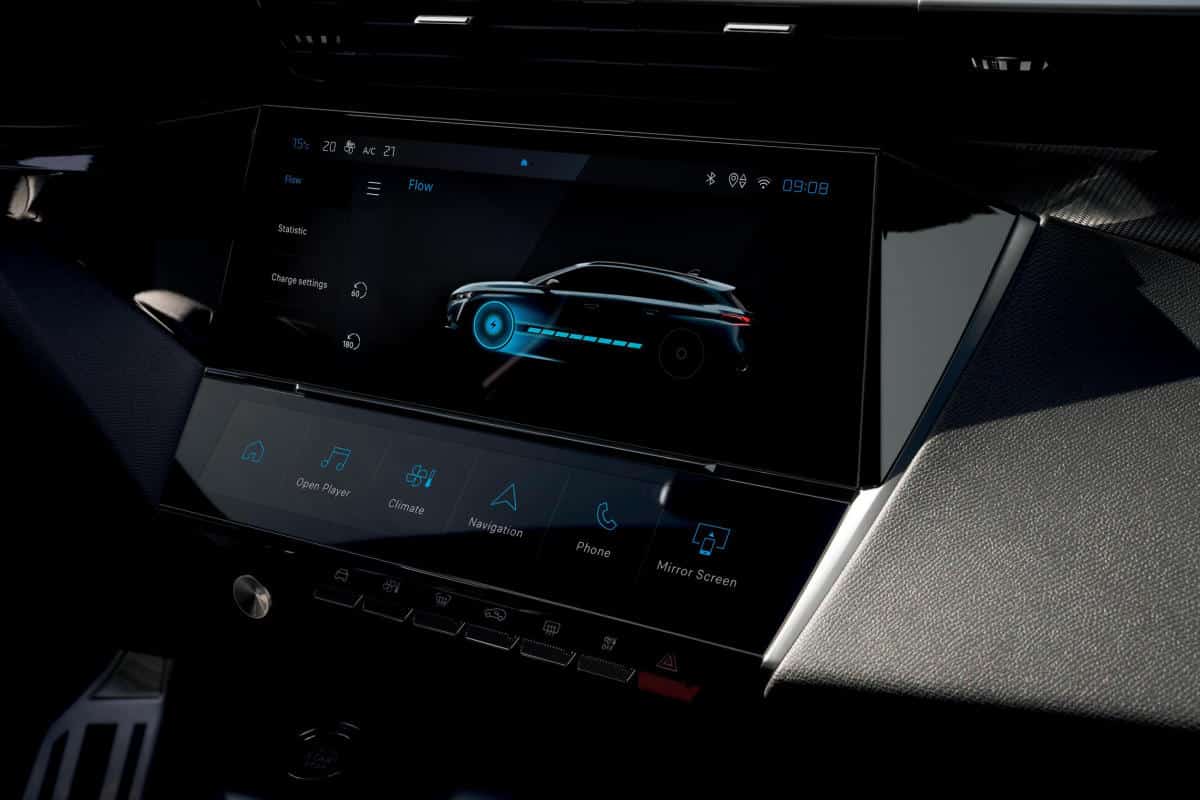
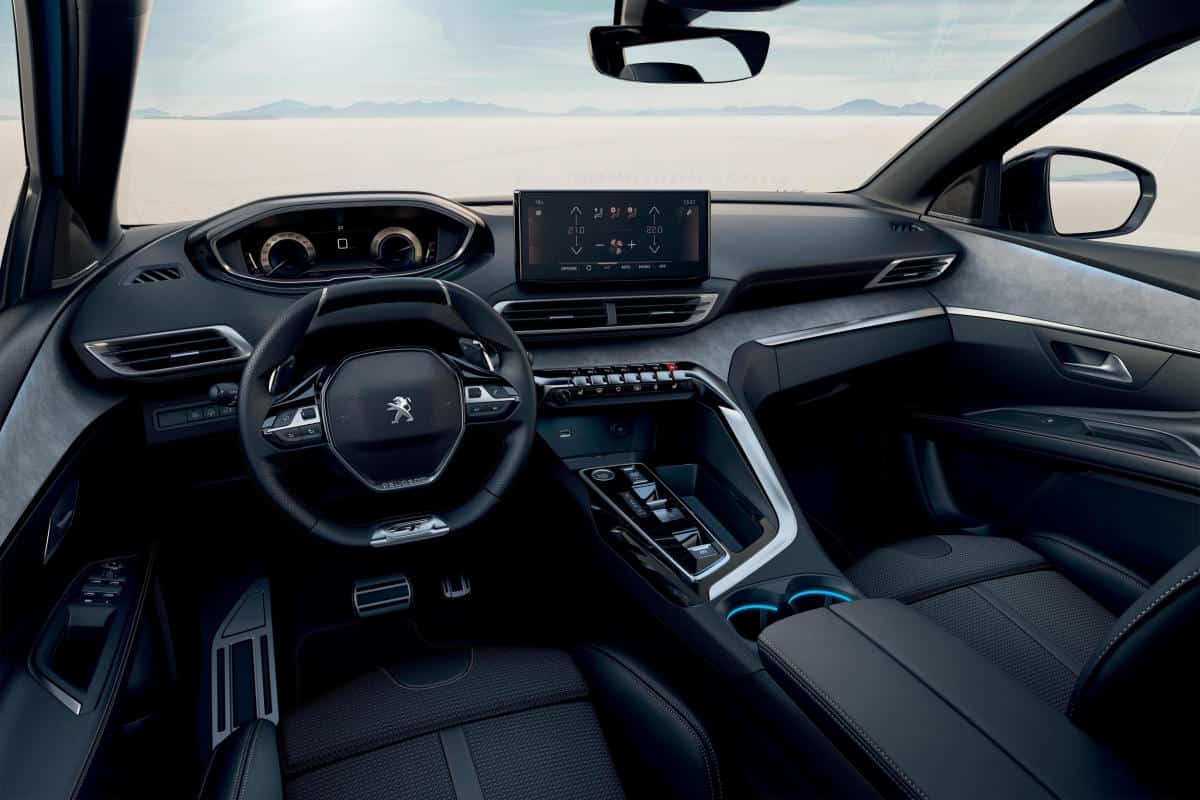
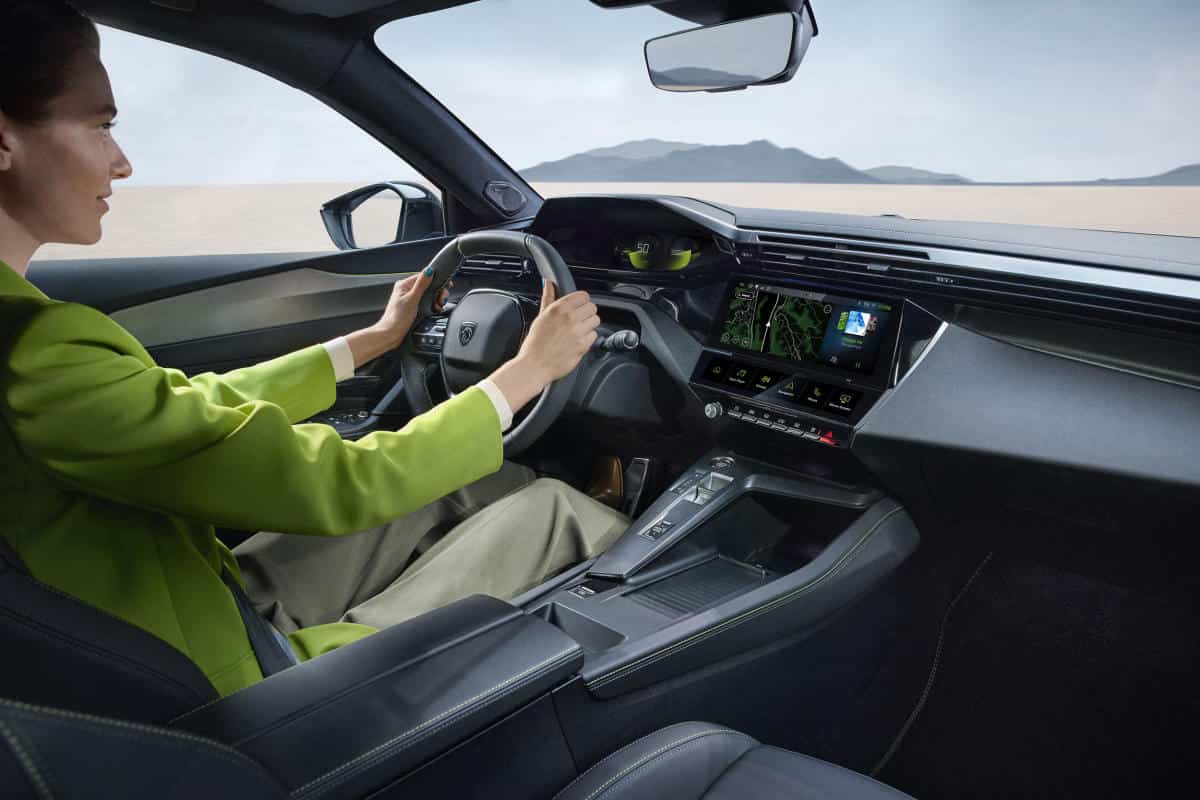
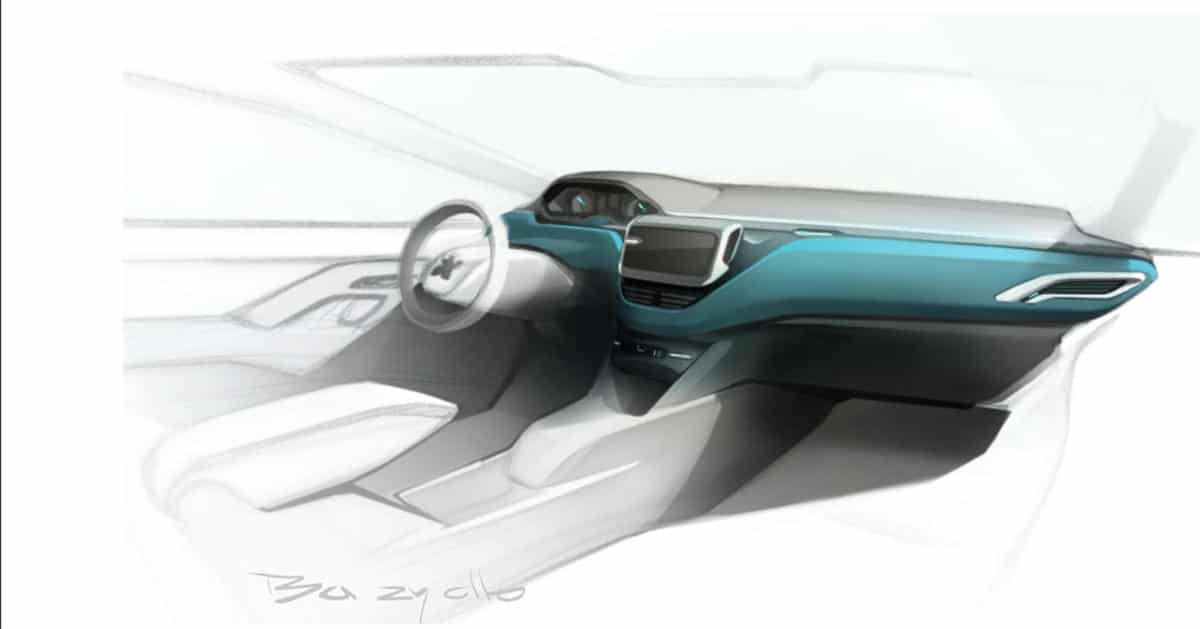
Content and images supplied via QuickPic
